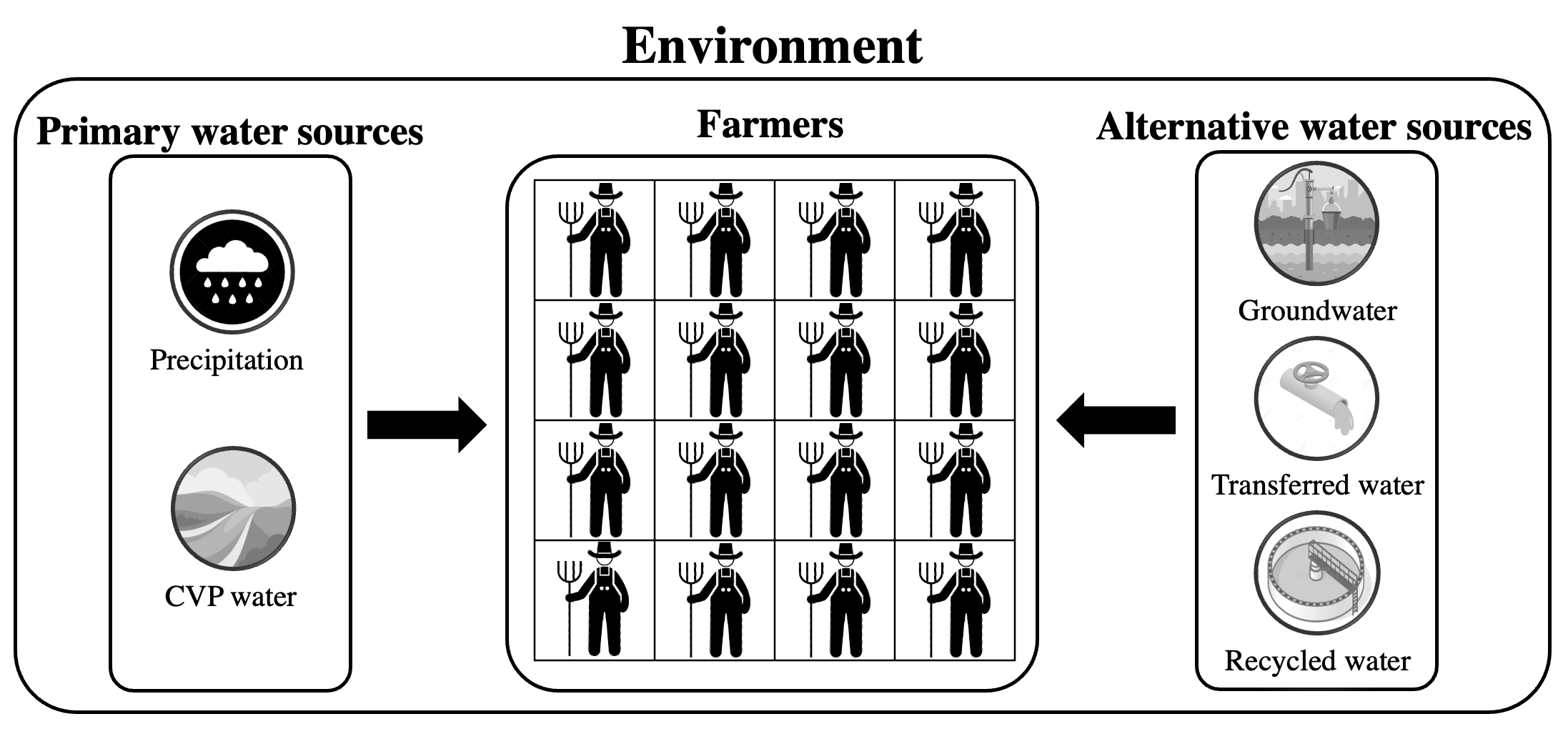Abstract
Agricultural water reuse is gaining momentum to address freshwater scarcity worldwide. The main objective of this paper was to investigate the micro-level dynamics of water reuse adoption by farmers at the watershed scale. An agent-based model was developed to simulate agricultural water consumption and socio-hydrological dynamics. Using a case study in California, the developed model was tested, and the results showed that agricultural water reuse adoption by farmers is a gradual and time-consuming process. In addition, results also showed that agricultural water reuse could significantly decrease the water shortage (by 57.7%) and groundwater withdrawal (by 74.1%). Furthermore, our results suggest that recycled water price was the most influential factor in total recycled water consumption by farmers. Results also showed how possible freshwater shortage or groundwater withdrawal regulations could increase recycled water use by farmers. The developed model can significantly help assess how the current water reuse management practices and strategies would affect the sustainability of agricultural water resources.

This work is licensed under a Creative Commons Attribution-NonCommercial 4.0 International License.
Copyright (c) 2022 Farshid Shoushtarian, Masoud Negahban-Azar, Andrew Crooks


